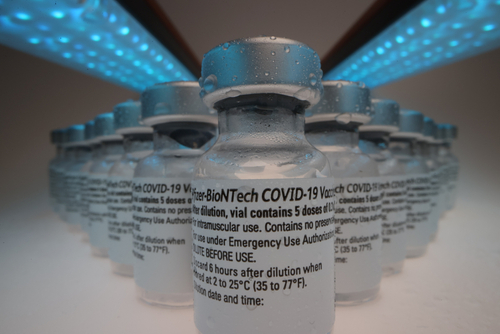
As the world continues to grapple with the ongoing pandemic, the development and distribution of vaccines have become a hot topic of debate. Amidst the growing concerns about the safety and efficacy of mRNA vaccines, a recent Japanese preprint study has urged for a halt in their usage. However, this recommendation has been met with a wave of pushback from conservative voices. In this article, we will delve into the conservative perspective on the controversial issue of mRNA vaccines.
To begin with, let's address the question on everyone's mind: what exactly are mRNA vaccines? These vaccines work by using genetic material from the virus to trigger an immune response in the body. While traditional vaccines use a weakened or inactivated form of the virus, mRNA vaccines deliver instructions to our cells to produce a harmless piece of the virus's protein. This approach has been hailed as a revolutionary breakthrough in the field of medicine, but it has also sparked concerns among conservatives.
Imagine seeing this & then still queuing up willingly to take several experimental mRNA injections for a virus that many people didn’t even have any symptoms for.
Even after several years I still can’t get my head around it. pic.twitter.com/RUf79079lI
— Tp (@QFs_Global) March 27, 2024
The Japanese preprint study that has caused quite a stir within conservative circles argues that mRNA vaccines may pose potential risks, such as autoimmune diseases and infertility. The study, conducted by a team of reputable scientists, has analyzed the data from various sources and has raised serious concerns about the long-term effects of these vaccines. It has been met with both support and skepticism from experts, but the conservative camp has taken a firm stance against the usage of mRNA vaccines.
One of the main concerns voiced by conservatives is the lack of long-term testing on the safety of these vaccines. The traditional vaccine development process, which involves years of research and clinical trials, has been bypassed due to the urgency of the pandemic.
This is Dr Vicky Jennings. Trauma surgeon. She spent years shaming people for refusing to get the mRNA vaccine. She seemed to like that 💉 in particular 🤔
She died suddenly of a massive heart attack. She was 43 years old & she will now forever be just 43. pic.twitter.com/j64uMj1BsB
— ♥️🇺🇸 𝓒𝓪𝓽𝓲𝓪 🇮🇹♥️ (@CB618444) March 26, 2024
This has raised red flags for many conservatives, who fear the potential consequences of rushing such a critical aspect of public health. Furthermore, the fact that mRNA vaccines have only been authorized for emergency use has only added fuel to the fire.
In addition to the safety concerns, conservatives have also highlighted the issue of personal freedom and individual rights. With many countries implementing mandatory vaccination policies, conservatives argue that it goes against their fundamental beliefs and freedoms. They believe that the decision to get vaccinated should be a personal one, and the government should not have the power to dictate such matters.
Moreover, some conservative voices have also raised concerns about the ethical implications of mRNA vaccines. As these vaccines use fetal cell lines in their production process, it goes against the pro-life stance of many conservatives. This has caused a moral dilemma for some individuals, who are torn between their beliefs and the urgency of the pandemic.
In conclusion, the topic of mRNA vaccines has sparked a heated debate within conservative circles, with some arguing for a halt in their usage and others supporting their development and distribution. The Japanese preprint study has brought to light important questions and concerns that cannot be ignored. As the world continues to navigate through these unprecedented times, it is crucial to consider all perspectives and make informed decisions for the well-being of our society.









